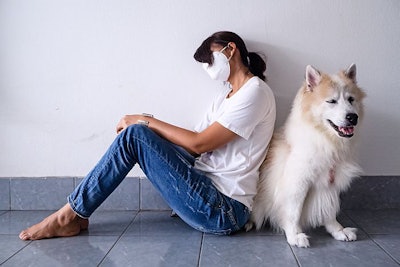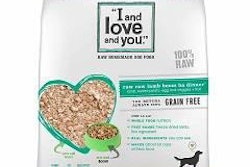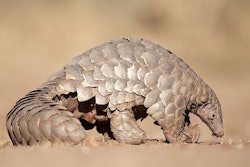
In March, pandemic preparations preceded the spread of the SARS-CoV-2 coronavirus, and pet owners stocked up on needed nutrition for their dogs, cats and other animals. Pet food industry analysts observed U.S. retail sales dramatically increase during the early stages of the COVID-19 pandemic, particularly of dry kibble, as pet owners changed buying habits to build stockpiles. Professionals told Petfood Industry the same thing in interviews and surveys. However, U.S. pet owners may have bought enough supplies to last months, so a brick-and-mortar retail sales dip may be coming.
How is COVID-19 affecting your pet food business?
By sharing how your pet food business is coping with the novel coronavirus crisis, you can contribute and learn how the overall global industry is faring.
“All segments for dog and cat food saw significant growth versus the previous year, but dry food appears to be coming out slightly ahead,” said Maria Lange, vice president of strategic verticals pet and cannabis for Nielsen. “In the weeks leading up to March, both wet food and treats saw stronger year-over-year dollar growth than dry food, but dry has seen the strongest year-over-year growth since COVID-19 buying trends began.”
While the COVID-19 pandemic has disrupted many businesses, U.S. pet food industry suppliers, manufacturers and others remain at work as essential to the nation’s infrastructure by federal guidelines. Pet food makers have found ways to balance increased demand with workforce movement restrictions and enhanced sanitation procedures.
“Prior to COVID, we were already projecting very strong growth for 2020, and while we are experiencing an unprecedented level of demand, our number 1 priority remains meeting the nutritional and dietary needs of our pet community…” Lindsey Rabaut, VP of marketing for “I and love and you” said.
Pet food sales in U.S. increase during COVID-19 pandemic
“I and love and you” pet food sales increased 89% in the week following Friday, March 13, as reports of the virus and quarantine measure spread. The brand’s weekly revenues grew 62% in the second week of March, then 85% in the third week and 91% in the fourth week.
Those results were not unique. In a Petfood Industry poll, 52% of respondents indicated that sales of their company's pet foods and treats increased substantially since the onset of the COVID-19 pandemic. Another 28% reported that sales had increased somewhat. While the panic buying surge won’t continue, 40.7% of survey respondents still see increased sales coming in the rest of the year, while 35% believe they will level off.
“Based on the sales increase we've seen, most pet owners likely stocked up on pet food for at least two months, so we'll be seeing a large decline year-over-year in brick and mortar sales in Q2 2020,” Lange said.
With these rapid, unforeseen changes in retail sales patterns, pet food companies attempt to adapt.
“In terms of understanding our immediate demand we try to be as fluid as possible to meet the needs of the consumer,” she said. “Our sales team and business leaders have weekly touchpoints with our customers and suppliers to understand the needs of our consumers and the capabilities of our supply chain. We have seen a demand spike across all our sales channels, and we are working to ensure we have the necessary inventory levels to meet the demand of our customers.”
Long term effects of COVID-19 pandemic on pet food
That time seems likely to stretch on as the world adjusts to life during a pandemic, then as people deal with the psychological and economic repercussions of COVID-19. During the pandemic, most “I and love and you” employees work from home. The company has limited office hours staffed by a small, specific group.
“In anticipation of a continual state of increased demand our focus is to operate as normal and build inventory in areas that are critical for the health and wellness of our animals,” she said. “We have not experienced any manufacturing or shipping disruptions to date but recognize the flow of goods may slow given the increased demand on transportation and are being proactive.”
“The key to all of our success will be communication, our team is fully staffed and committed to keeping customers, suppliers, and employees informed.”
The pet food brand has also been keeping in touch with pet owners on social media and encouraging them to share amusing traits they’ve noticed in their pets while remaining at home, Rabaut said. The company has also helped the local Boulder, Colorado, USA community during the crisis. For example, “I and love and you” donated 11,000 meals to the Colorado Pet Pantry for dogs and cats in households of need.
View our continuing coverage of the coronavirus/COVID-19 pandemic.

















